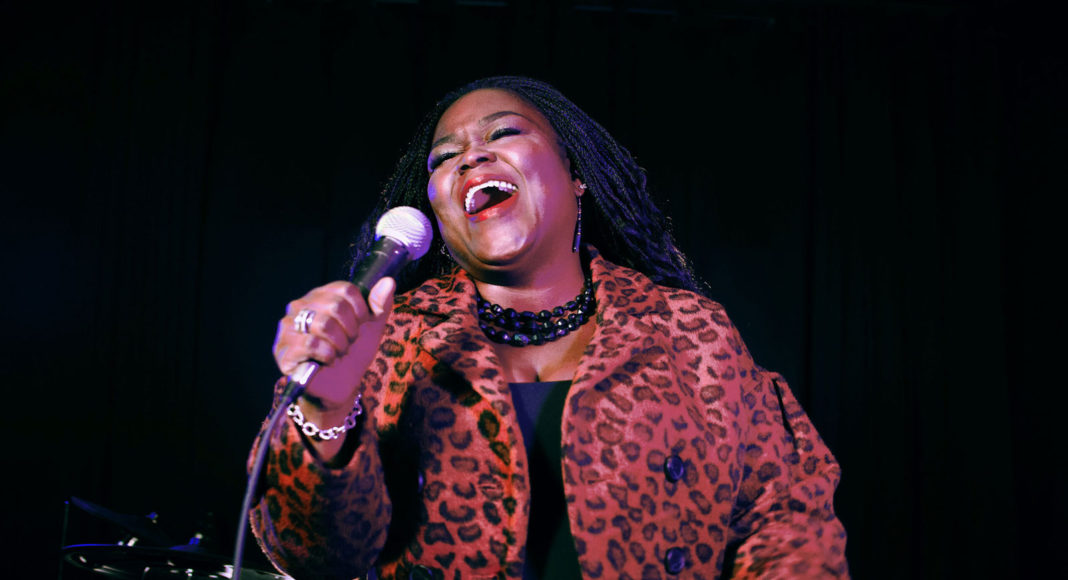Shemekia Copeland isn’t sure what to make of the Blues Music Award for Instrumentalist Vocals that she received recently.
Does it mean she’s the best singer in blues, male or female? Or was it another way to honor her after she’d already won 14 BMAs in categories from the B.B. King Entertainer of the Year (the top prize), to Album of the Year and Contemporary Blues Female Artist.
She said she was shocked with the award. “I feel like I’m more of a storyteller than a singer. The one thing I can say is I don’t sound like anybody else. My voice is different. That’s one thing I appreciate about myself,” Copeland said.
Widely considered today’s Queen of the Blues, Copeland is back playing shows this year, bringing her songs and vocals to fans around the country.
But she won’t be playing straight-up traditional blues, at least in terms of subject matter.
“In order for anything to grow, it kind of has to evolve,” Copeland said from her California home in a recent interview. “That’s kind of been what I’ve done for a long time—evolve and grow as an artist so my music can do the same. That’s very important for me.”
That evolution can be heard on Done Come Too Far, Copeland’s album from 2022, which is the final installment of a trilogy that also includes 2018’s America’s Child and 2020’s Grammy-nominated Uncivil War—records that find her reflecting on Black America’s past, present and future.
“It’s always been important to me to sing and talk about things that others don’t,” she said. “I want to be different and I want to talk about what goes on in the world. I’m very much trying to bring people together.”
That’s the aim of searing history-based songs like “Too Far To Be Gone” which addresses the Civil Rights movement with allusions to Rosa Parks, John Lewis and Martin Luther King, Jr., and “Gullah Geechee,” which looks at the ongoing impact of slavery.
When it comes to facing difficulties and having burdens to bear, Copeland believes people should recognize we’re all the same.
“It shouldn’t be ‘my ancestors went through something worse’ or anything like that. That’s one of the things that gets lost,” she said. “We should all be aware of what others had to endure and be sympathetic. Not just ‘screw you.’”
There are other topical songs on the album as well, like “Pink Turns to Red,” on which she decries the country’s gun violence epidemic, and “The Talk,” about a Black mother talking to her son about an encounter with police—something Copeland will soon have to do with her boy, Johnny.
Done Come Too Far isn’t all serious. There are also a pair of funny songs, a zydeco number and a torch song, “Why Why Why,” that’s a stunning showcase for her voice.
Plus, there’s Copeland’s version of her late father Johnny “Clyde” Copeland’s “Nobody But You,” which can only be heard as a loving nod to her past.
At 8 years old, Shemekia joined her father on stage at New York’s famed Cotton Club and spent her teenage years learning the blues and the business with her dad.
Signed to Alligator Records at 18, Copeland immediately became a blues and R&B sensation, hailed for her vocals, performance and personality. Her 2000 album Wicked garnered the first of her four Grammy nominations and 2005’s The Soul Truth earned eight Blues Music Awards, establishing her as one of the genre’s top artists.
With 12 albums and decades of performing now under her belt, the 44-year-old doesn’t feel like all that much is different decades after she began singing with her dad.
But she said she’s grown up.
“I love that. Aging has been the best thing that’s happened to me. Age and acceptance have been wonderful for me,” she said.
Perhaps the biggest change for Copeland came six years ago, with the birth of Johnny, who’s named for her father. She said wants her son to have confidence, to be himself and love himself unconditionally.
“I really want to make the world a better place for him,” Copeland said. “I want to be the best version of myself I can be for him.”
Her husband, Brian Schultz, who makes the new album on the semi-autobiographical “Fell in Love With a Honky,” grew up in Nebraska, in Scottsbluff. But she said the move has been great for her family and her husband, who says “he’s never going back anywhere it snows.”
Copeland is a steady presence on the live music scene, but maintains a schedule more akin to country acts than hard-touring rock or blues musicians, who commonly play five or six shows a week on tours that last a couple of months or so at a time.
“I don’t consider myself a touring musician,” she said, noting she likes performing on weekends, rather than being out on long tours.
“I love going out and performing. I’m a weekend warrior,” she said.













